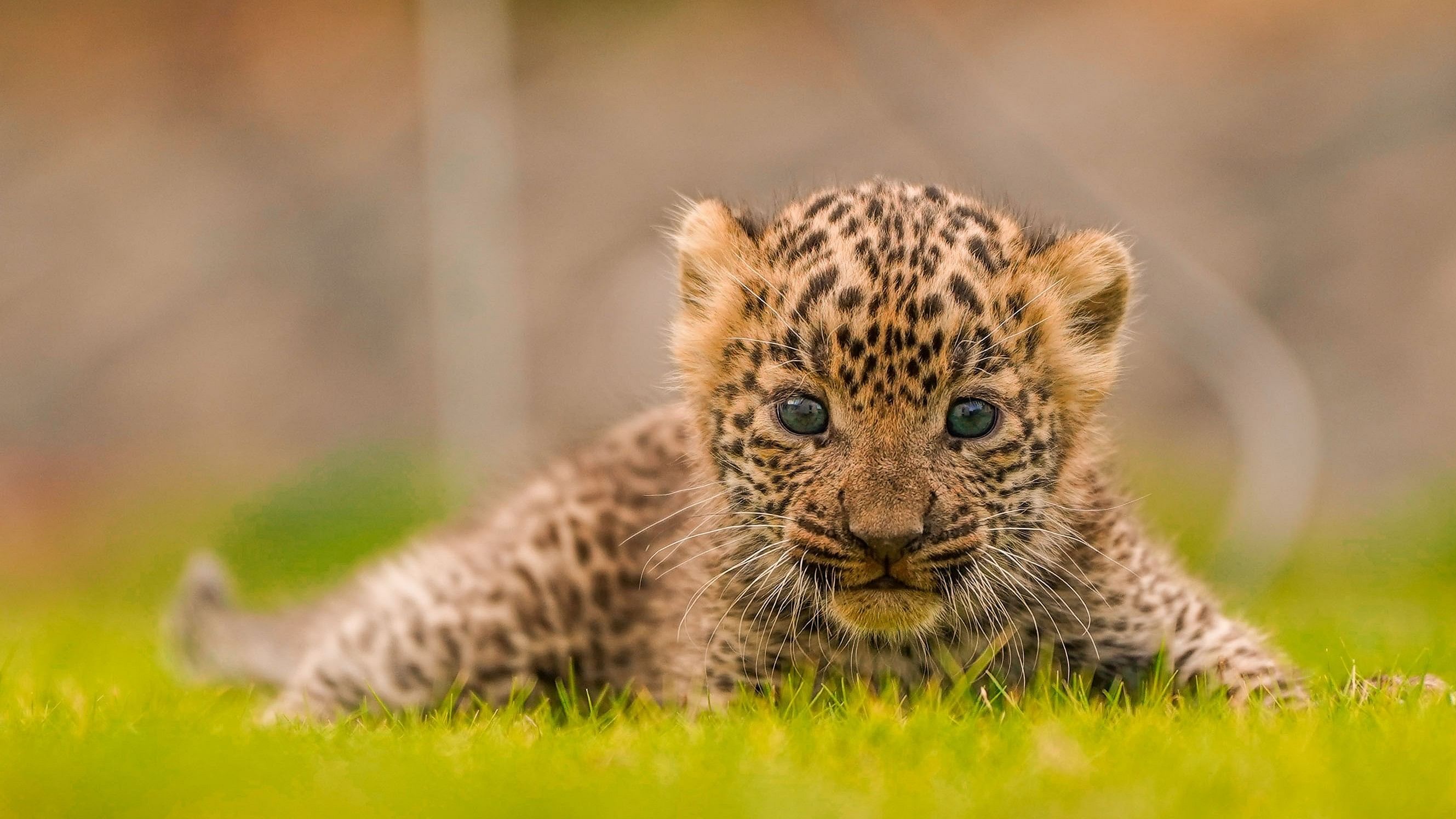
Image of a leopard cub.
Credit: Wildlife SOS
Mumbai: Officials of the Sanjay Gandhi National Park (SGNP) here are leaving no stone unturned to reunite three leopard cubs with their missing mother.
Images from multiple camera traps are being scanned round-the-clock, and even the little ones' scat is being scattered in hope that it would bring the mother back.
It is a race against time, as the cubs have been away from the mother for more than a month now.
The leopard cubs, now about two months old, were found in an eight-feet deep dry water tank near a buffalo stable in Aarey Colony area on the park's periphery, barely 200 meters from the busy Western Express Highway, on January 16.
Forest officials have launched a massive hunt for the leopardess since then. "When we first found them, we aimed to reunite the cubs with their mother," said range forest officer (RFO) Niket Shinde.
When they were found, the cubs were given milk, chicken soup, raw chicken and water. They polished off the chicken, leaving the milk untouched, said Dr Vinaya Jangle, a veterinarian at the SGNP.
For the next five days, the forest department decided not to intervene directly but wait for the mother to return.
"We set up camera traps near the water tank and posted our personnel not far from the spot to guard the cubs and monitor if the mother returned," Shinde said.
Simultaneously, 15 camera traps were placed in the 8-10 km radius from the spot.
After waiting for five days, the officials made an active attempt to look for the mother leopardess by placing the cubs in a small cage not far from the water tank.
The park personnel monitored the cubs the whole night, ready to open the door of the cage with a pulley as soon as the mother arrived, but there was no sign of her.
The cubs were then shifted to the rescue centre inside SGNP.
Officials are not ruling out the possibility of the mother having abandoned them.
The cubs could be her first litter and she could have been stressed about how to deal with them, RFO Shinde said.
According to Dr Jangle, females of the cat family sometimes resort to false mating if there is a male near the cubs to ensure their safety. But this does not take more than five to six days.
A real forest inside the city’s concrete jungle, SGNP is known as Mumbai's lungs.
The 87 sq km oasis spread across parts of north Mumbai and neighbouring Thane district houses hill ranges, two lakes that provide water to Mumbai, and Buddhist caves of Kanheri. It is home to at least 47 leopards.
The big cats are also known to stray into adjoining Film City, the nerve center of the Mumbai film industry, occasionally.
At the moment, SGNP's rescue centre has 22 leopards, including orphaned cubs and injured big cats.
The three cubs look like fur balls, but their growl and gait leave no doubt about their pedigree.
The park has appointed two personnel specially for their care.
"The three cubs together weighed 12 kg," Dr Jangle said.
Their diet is mainly boneless chicken, given twice a day. They are putting on about 125 gm of weight daily.
They are also being administered vitamins and medicines containing nutrients they would have otherwise got from their mother's milk.
"Babies, whether human or leopard, need love and care. They frown and get possessive if more attention is given to one of them. They are naughty, inquisitive and playful," said Manoj More, their caretaker.
More releases them in an enclosure every morning and evening so that they get a regular dose of sunlight. At night, he puts on a heater to ensure that they don't miss their mother's warmth, as temperatures inside the park can drop by as much as seven degrees Celsius compared to the outside.
All this while, efforts to find their mother are continuing.
"We spread the scat of the cubs in and around the location they were found, hoping that the mother will smell it and return," Dr Jangle said.
"So far, we have got images of a male and a female leopard in camera traps, but not the mother," she added.
If the cubs could not be reunited with the mother soon, they may have to spend their lives in captivity.
"In the cat family, the mother teaches the cubs to hunt. In her absence, it is difficult for them to survive in the park even after they become adults," Dr Jangle said.
"We have had reunions of mothers with their cubs in the past, but if these three cubs are reunited, it will be a record as the mother and the cubs have stayed apart for over a month," said assistant conservator of forest Sudhir Sonawale.